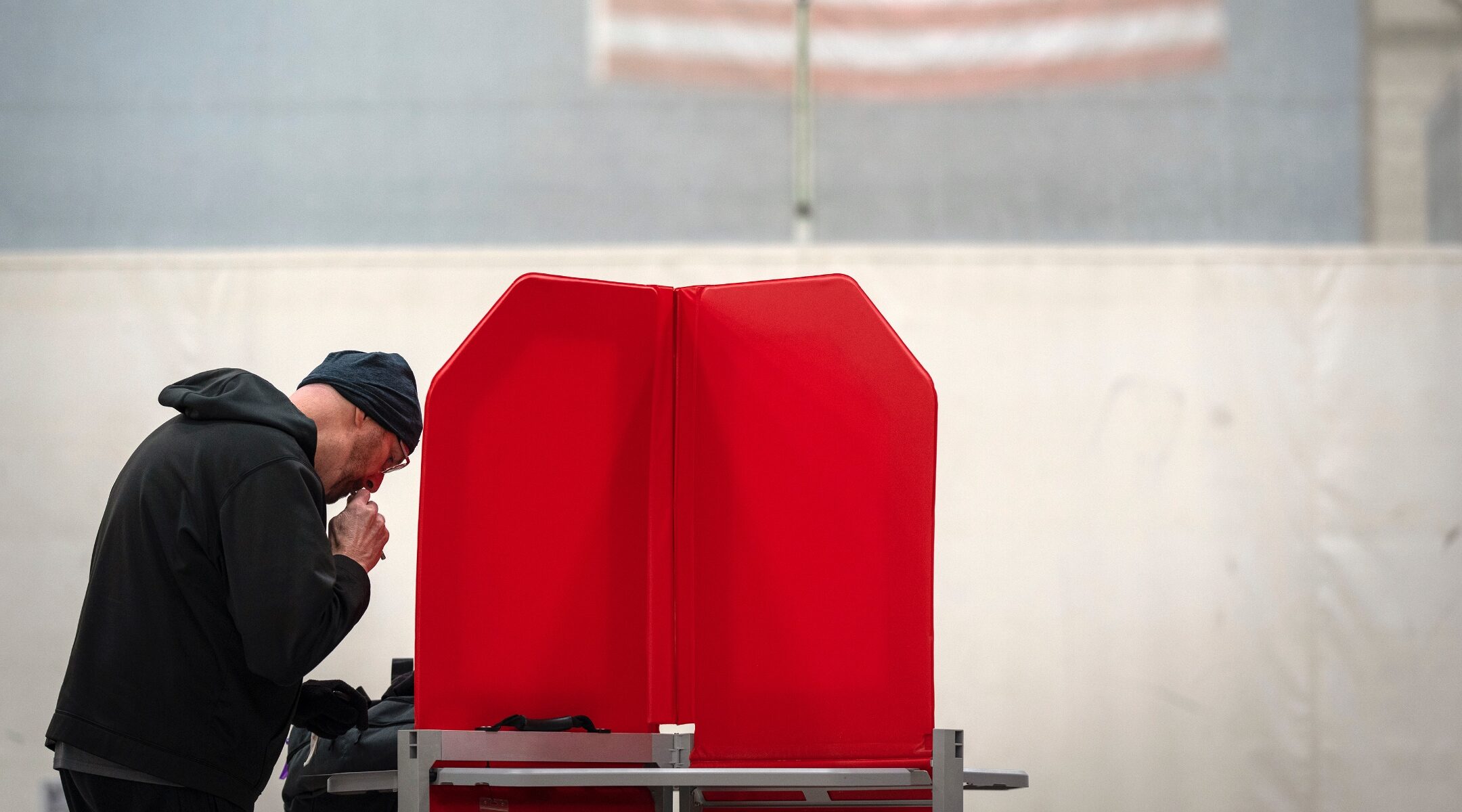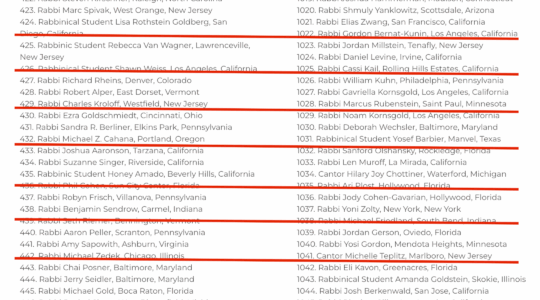(JTA) — A week after a campaign to show opposition to President Joe Biden’s Israel policies made a mark in the Michigan primary, it garnered substantial results in at least another five states, a sign that the Gaza war could dog his campaign for reelection.
The results did not dent Biden’s overwhelming wins in the 16 states in play on Super Tuesday. Former President Donald Trump looked set to sweep all but one of the states as well, making a Biden-Trump rematch seem all but inevitable.
Still, organizers of the campaign were elated with the results. The campaign that launched the effort, Listen to Michigan, congratulated its Minnesota counterpart. “See you at the Democratic National Convention, Minnesota uncommitted!” it said late Tuesday on X, formerly Twitter.
Democratic primary voters voting “uncommitted” took substantive portions of the vote Tuesday in North Carolina, Minnesota, Massachusetts, Tennessee and North Carolina. The campaign targeted Democrats in all five states in alliance with left-wing activist groups, including Our Revolution, a leading progressive group associated with Sen. Bernie Sanders.
The substantive showings suggested that Michigan, a state with a large Arab American population, was not an anomaly, and that polling showing unhappiness with Biden’s support for Israel in its war against Hamas among younger and minority voters could hurt him in the general election in November.
The uncommitted percentages barely dented Biden’s overwhelming win in each state, but far outdid 2020 percentages for uncommitted voters. In Minnesota, with 74% of votes counted at 10 p.m. Central Time, uncommitted was getting 20% of the vote; it garnered less than a half percent in 2020.
“Our humble movement of Democrats uncommitted to Biden’s funding of war in Gaza emerged victorious tonight,” the Minnesota uncommitted campaign said in a statement. “We expect to win at least one delegate to send to the Democratic National Convention in Chicago to hold our nominee accountable to an anti-war agenda.”
In Colorado, with 74% of the vote counted at 9 p.m. Mountain Time, uncommitted was getting 7.5% of the vote. It did not register at all in 2020.
In North Carolina, at 11 p.m. Eastern Time, with 93% of the vote counted, uncommitted voters were 12.5% of those voting in the Democratic primary. In 2020, it was 1.64%.
In Tennessee, at 11 p.m. Eastern Time with 80% of the vote counted, uncommitted garnered 8% of the vote. It got less than a quarter of a percent in 2020.
In Massachusetts, with 51% of the count recorded at 11 p.m. Eastern Time, uncommitted was getting 9% of the vote. It got less than a half percent in 2020.
Some observers said a more apt comparison would be to when an incumbent president was running for reelection, and pointed to comparable scores for “uncommitted” in 2012 in Tennessee, North Carolina and Massachusetts, when Barack Obama won a second term.
Still, the Democratic establishment appears to be sensitive to the push from the Israel-critical activists. Minnesota’s governor, Tim Walz, told CNN the party should focus on winning back the voters.
“We’ve got eight months. We’ve got to bring these people back in and listen to what they’re saying,” Walz said. “Take them seriously. Their message is clear, that they think this is an intolerable situation and we can do more, and I think the president is hearing that.”
Few believe the largely progressive uncommitted voters will opt for Trump, but there are concerns they will stay home in November.
The Biden Administration has in recent days sharpened its criticism of Israel, saying the country is principally responsible for difficulties in getting humanitarian assistance into Gaza. Global health officials say the enclave is on the verge of famine.
The “Uncommitted” campaign hopes to claim delegates at the Democratic convention in Chicago in August, where they would be able to amplify their cause on the floor. It is not clear whether the rules would allow the campaigns to claim delegates.
Rep. Dean Phillips, the Minnesota Jewish Democrat who is running a long shot primary campaign, scored his highest return so far in his home state, with 8%.
Trump’s only rival, Nikki Haley, won her first state, Vermont, and said in a statement she was not ready to give up. “Unity is not achieved by simply claiming ‘We’re united,'” she said. “Today, in state after state, there remains a large bloc of Republican primary voters who are expressing deep concerns about Donald Trump.”
Trump seemed on his way to secure the necessary number of delegates to win the nomination as early as next week’s primaries. A substantial share of Haley’s backing has come from Jewish and pro-Israel Republicans who are unsettled with Trump’s isolationist leanings and his past associations with antisemitism such as Kanye West.The former president also has a group of prominent Jewish backers who are grateful for his support of Israeli government policies.
Trump did not mention Haley in his victory speech, but started by saying that he would be better for Israel than Biden. His comments echoed his approach to the Israel-Hamas war, which he claims wouldn’t have happened on his watch because of the sanctions he placed on Iran, which funds Hamas.
“We wouldn’t have Israel being attacked,” he said to cheers at his south Florida residence, Mar-a-lago. “Iran, as you know was broke they didn’t have money for Hamas, they didn’t have money for Hezbollah.”
JTA has documented Jewish history in real-time for over a century. Keep our journalism strong by joining us in supporting independent, award-winning reporting.






